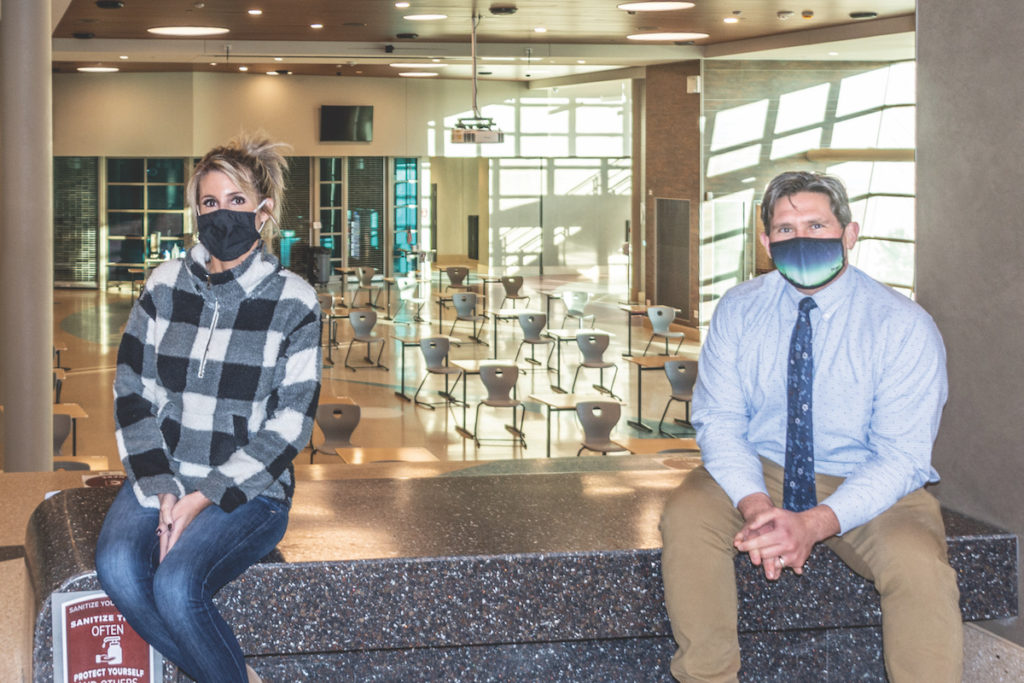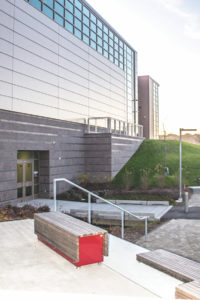
HARWICH — With isolation, possible illness, and family economic crises looming, the counselors at Cape Cod Regional Technical High School had every reason to believe the 626 students enrolled at the school would need more emotional support.
To find out for sure, four school counselors interviewed every single student during the month of October. Interviews were face-to-face, except for the 10 percent of students who had chosen remote learning, said Averill Davis, the school’s guidance dept. chair.
“It took a lot of time, but it was definitely worth it,” she said. “Even from their body language, we learned a lot.”
The meetings were ostensibly to ask each teenager a two-page list of questions developed at the University of California Los Angeles as a test for post-traumatic stress disorder resulting from the continuing coronavirus pandemic.

That screening found 13 of the 626 students — about 2 percent — exhibited signs of trauma severe enough for the counselors to call their parents and recommend counseling through the partnership between Cape Cod Tech and Gosnold on Cape Cod. About 10 more students also scored high for trauma, but they were already receiving regular counseling outside the school, said Erica Tasha, the school adjustment counselor.
The screening questionnaire, which was recommended by the Collaborative for Academic, Social, and Emotional Learning, also revealed that three students had lost a family member to Covid-19, Tasha said.
“Overall, the results were not as drastic as we thought they’d be,” said Davis.
But, she added, the timing of the screening may have played a role. The students were so happy to be allowed back in school when they were interviewed that they may have been experiencing the euphoria of a honeymoon phase, she said.
Early in the school year, Cape Cod Tech allowed students to return to their shop classes full-time, in person. And in November, academic classes resumed, 50 percent in-person, with students split into alternate days. That means about 75 percent of the school’s population is learning in-person on any given day, said Billy Terranova, the principal.
The biggest complaint from Cape Cod Tech students about the pandemic has been the social isolation — boyfriend and girlfriend relationships did not survive.
“We heard that a lot,” Tasha said.
Even those teenagers who lost someone close to the disease prioritized a return to school and to seeing their friends again, Davis said.
Outside Cape Cod Tech, requests for counseling in all school-based programs have gone up during the pandemic, said Suzanne McCormack, director of administrative services at Gosnold.
Gosnold, though known for its addiction treatment, is also the largest provider of mental health services on Cape Cod, and has counselors embedded in nearly every Cape school, said Becky Johnson, director of Gosnold’s school-based program. The program is covered by health insurance, but can also provide services to those who have no insurance, said Terranova.
Nearly 30 years ago, Cape Cod Tech became one of the first schools on the Cape to partner with Gosnold by offering mental health counseling in the school building, said Terranova. His student services staff has had to be innovative: 63 percent of the pupils have “high needs,” 27 percent are diagnosed with a learning disability, and 47 percent are economically disadvantaged, according to the state Dept. of Elementary and Secondary Education.
But students in every district are suffering. The most common issue that has brought students into counseling for the first time is failing grades due to remote learning, said Johnson.
“Some excel with remote learning, but others are really struggling,” Johnson said. “I do the intakes and I hear that a lot.”
This is why Gov. Charlie Baker has stated repeatedly that children need to get back into the schools as soon as possible, she said.
“You start to ask yourself, which is worse?” Johnson said. “The minimal risk that a student will give the virus to an older relative, or the student’s mental health?”



